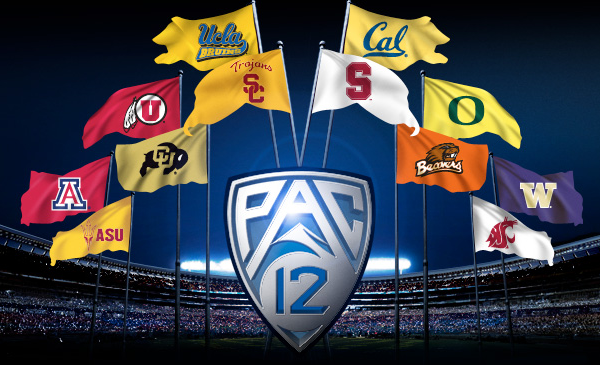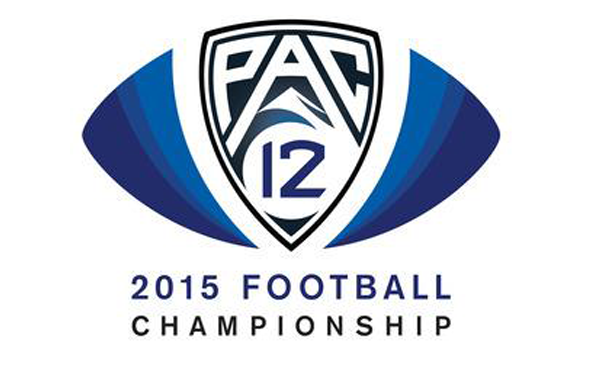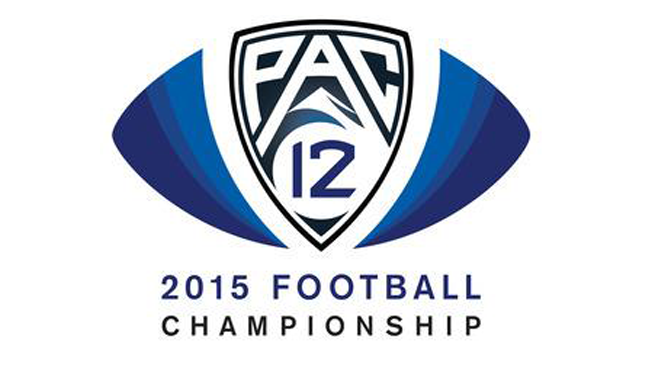Every outcome in college football is a referendum on a bigger picture topic, and the biggest picture of all is the College Football Playoff.
Thus when Stanford and Utah lost to Pac-12 opponents Saturday, complicating the conference’s hope of sending a representative to the College Football Playoff, an overarching referendum had to be made. But what?
Retweeted Pac-12 Networks (@Pac12Networks):
This unreal TD catch and run by Taj Griffin helped @wintheday seal a… https://t.co/6cge9EY17j
— Mark Kim Marion (@swensonmember) November 15, 2015
Hmm, what do the two games have in common? Oregon, which beat Stanford 38-36, is in the Pac-12. Arizona, a 37-30 winner over Utah in double-overtime, is also part of the Pac-12. I got it! The Pac-12’s possible Playoff exclusion is a referendum on the 9-game conference schedule!
Stewart Mandel, comparing the Pac-12’s current situation with that of the Big 12 a season ago, writes for Fox Sports: “the league’s ambitious scheduling model — nine conference games and a championship — will be the inevitable topic du jour.”
Inevitable, yes. The narrative’s already being set. But necessary? Or even rational? That’s debatable.
The exclusion of Baylor and TCU from last year’s College Football Playoff became the key takeaway of the inaugural tournament. At 11-1 apiece, surely their being bypassed for fellow one-loss candidates Oregon, Ohio State and Alabama had to mean something. What could it be?
I know! Alabama, Ohio State and Oregon all won one game more than Baylor or TCU, therefore the Big 12’s exclusion had to be a referendum on the conference’s lack of a championship game!
Here we are just a year later, and Big 12 contenders Oklahoma and Oklahoma State are better positioned to reach the Playoff than the Pac-12 champion — without a championship game, and with a nine-game conference schedule, to boot!
It’s almost as if the Big 12 having a shot at the expense of the Pac-12, despite playing nine conference games, immediately invalidates the idea that a nine-game slate is a major Playoff deterrent.
But, if you’re invested in this idea and need further convincing, consider that four-team field in 2014 mentioned above. Note that it includes Oregon — yes, Oregon, Pac-12 member and player of nine conference games (10, if you the count the conference championship game).
The Ducks didn’t just make the Playoff; they won a semifinal against previously undefeated Florida State rather emphatically and played Ohio State for the national title. Imagine the referendum that would have born of Oregon claiming the national championship then.
Not only did Oregon play a nine-game Pac-12 slate, five of those nine were on the road. Oregon also hosted Michigan State, a one-loss team that finished ranked in the Top 10 and beat aforementioned Baylor in the Cotton Bowl.
Had the Ducks beaten Ohio State, the big-picture takeaway would have declared the ambitious scheduling now being decried is actually vital to shaping a team’s championship resolve. Test yourself in September, October and November and be rewarded come January!
In much the same vein, had either Stanford or Utah won Saturday (particularly Stanford), no one’s talking about absolving the 9-game schedule. On the contrary, the Cardinal are celebrated for stockpiling resume wins and proving the team’s worthiness of the Playoff despite a Week 1 loss at Northwestern (not a Pac-12 opponent).
Now, let’s remove every hypothetical from the conversation save the core of the debate: the nine-game schedule. Replace Stanford and Utah’s nine-game conference schedule with an eight-game schedule and…the results are the same.
Of their combined three Pac-12 losses — Utah to Arizona and USC, Stanford to Oregon — all came against divisional opponents. Nine Pac-12 games, eight, 11 or five, it doesn’t matter. Stanford and Utah were going to play the exact same three league teams because they’re all in the same division.
Nate Phillips! WHAT A CATCH! @arizonafball leads in double OT on @fs1! #UTAHvsAZ https://t.co/g6UYdp4w9x
— Pac-12 Networks (@Pac12Networks) November 15, 2015
As unsatisfying as it may be for fans and assorted other supporters of the conference, the simple truth might be conveyed by Friend of CFB Huddle Kevin McGuire at NBC Sports: The Pac-12 simply doesn’t have a championship-caliber team in 2015 as it did just a year ago. Not as interesting as finding big-picture referendums, but it’s reality.
That’s not a slight against the Pac-12, which has worked hard to build up its reputation in the last half-decade. After being criticized for years for its lack of depth, the conference has grown into a model of parity and depth.
Overall strength is now the Pac-12’s identity, the identity it collectively worked for years to establish. It shouldn’t abandon that identity because of the still-not-even-finalized outcome of one season.








